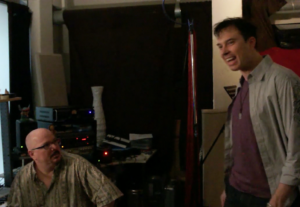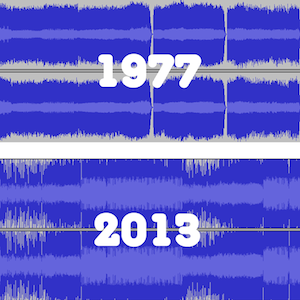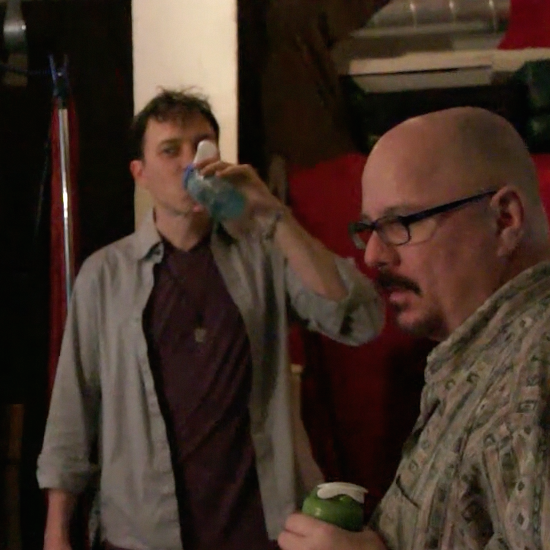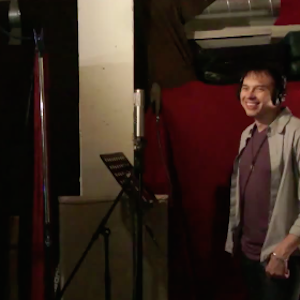 One thing these days that lots of people have complained about is extremely loud mastering of music and how it tends to kill the song. I’m someone who has heard many a song released where the mastering and/or mix was so brick wall limited that it ends up sounding distorted, lacking dynamics, and it’s disappointing. It destroys the vibe of the recording, all in the name of attempting to stand out above all others when broadcast to the world. The end result of these loud mixes that are overly compressed and limited is one of making the song sound small and shitty. Small and shitty is not necessarily the result any self respecting musician would ever want for their releases. However, many record labels now force this concept of “make it LOUD” to the mixing engineers and the mastering guys.
One thing these days that lots of people have complained about is extremely loud mastering of music and how it tends to kill the song. I’m someone who has heard many a song released where the mastering and/or mix was so brick wall limited that it ends up sounding distorted, lacking dynamics, and it’s disappointing. It destroys the vibe of the recording, all in the name of attempting to stand out above all others when broadcast to the world. The end result of these loud mixes that are overly compressed and limited is one of making the song sound small and shitty. Small and shitty is not necessarily the result any self respecting musician would ever want for their releases. However, many record labels now force this concept of “make it LOUD” to the mixing engineers and the mastering guys.
Once in a while, a mistake can lead to a new discovery about how to approach doing something. Said mistake can end up starting a new way to look at a problem. Such is the case with an approach George Leger III stumbled upon while putting his mastering skills to the test for my song Touch. I have a version of Touch that has been mastered by the great John Rodd. But before I end up releasing the song, I’ll consider going with a second master based on George’s new technique. To put it simply, it’s mind shredding loud mastering, without sounding distorted or compressed.
Watch as I get George to discuss the process of super loud mastering he stumbled upon, to my buddy Jesse Stern, who is also the co-writer on “Till We Meet Again.”
Loud Mastering

Transcript:
So we can get the low down on all this trickery.
Well really all it is… is this is a 32 bit hard… uh, software mixer right.
Yeah.
But because it’s 32 bit, you can crank the crap out of the levels internally. So I can take this fader and ride it up to say +9. And it won’t clip.
Hmmm.
It chops the top off, but it does it in a way that it doesn’t sound dynamically compressed.
Like a soft clipping type thing?
So you can push it up and it sounds loud without sounding [distorted] compressed. Or distorted. Jody was just like: I don’t know what you did man, but the file you gave me, the mastering… It’s the loudest I’ve ever heard and it’s like doesn’t sound bad at all. It sounds great.
Well, yeah. He did a master of Touch.
Uh huh.
That he gave back to me and I was like it was just… what did I say? Mind shredding loud?
Yeah. It was super super loud. [it was so loud…] I didn’t even realize I had done this when I did it. Until I went back and looked and I went, oh wait a minute I didn’t go through this whole thing that I thought I was going through.
And I’m looking at the meters of my thing and my meters are still going up and down with all the dynamics. I’m like how the F^#$ is it so God damn loud!
Yeah. And not like: Phhhhfffftttt! Like crushed. Normally you do that and it gets crushed. What I discovered is that you can actually use this internal little mixer to jack the heck out of your levels, but it doesn’t distort.
Wow.
And it doesn’t sound compressed.
That’s cool.
It is really cool. Cause it’s like you can add 6 to 9 db of limiting without it sounding at all like that’s what you did. The nice thing that I like about the master that I did is… The attack of the kick and the snare are still there. Dynamically it’s like BAM BAM it just sounds so good. I couldn’t believe it. I was like, what the hell.
Okay, are we ready?
We’re ready. We’re ready. Anybody ready?
Have thoughts on loud mastering for your music – chime in in the comments below. I’m happy to discuss.


 Ever wonder how we musicians figure out how to describe a song to others so that they’ll understand what the song is before they get to hear it? It’s important to know how to describe the sound of a song to others before they hear it. The better the description, the more enticing it becomes to the uninitiated to hear it. Catch a glimpse of us working through one of the steps of understanding the song so we can approach knowing how to describe it to you, the listener. Follow George Leger III, Jesse Stern and I as we pull apart some fine points in the studio.
Ever wonder how we musicians figure out how to describe a song to others so that they’ll understand what the song is before they get to hear it? It’s important to know how to describe the sound of a song to others before they hear it. The better the description, the more enticing it becomes to the uninitiated to hear it. Catch a glimpse of us working through one of the steps of understanding the song so we can approach knowing how to describe it to you, the listener. Follow George Leger III, Jesse Stern and I as we pull apart some fine points in the studio.

